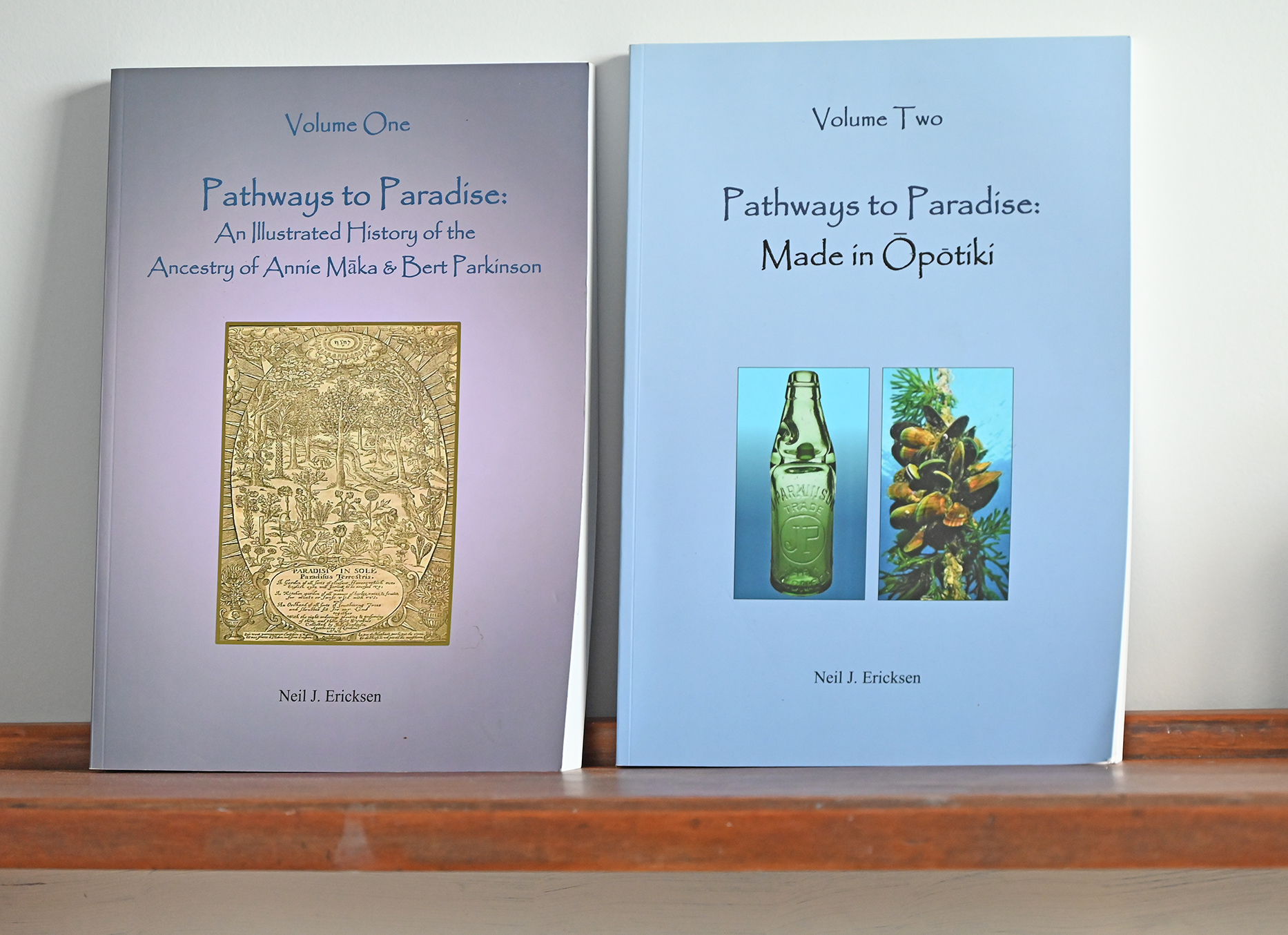Two books on town history

TWO VOLUMES: Pathways to Paradise Volumes 1 and 2 are for sale at Ōpōtiki Museum. Photo Paul Charman E5645-01
Paul Charman
Knowing his late wife, Glennis, wanted to know more about her Māori and English heritage, Neil Ericksen upon retirement in 2010 embarked on research to fulfil her last wishes.
It resulted in two volumes on the life and times of people who eventually came together in Ōpōtiki shortly after unjust confiscation of Whakatōhea's lands by the Crown.
Mr Ericksen said his research revealed a different picture to what he was taught growing up in Ōpōtiki during the 1940s and 50s.
Published in 2022, his book in two volumes highlights 700 years of Māori and English history in relation to the ancestry of Annie Māka and Bert Parkinson, who married in Ōpōtiki, Aotearoa New Zealand, in 1914.
Finding out how the ancestors moved across the Pacific, USA, Australia, and Aotearoa, the two books relate their experiences through an amalgam of history, biography, and imagination. Each is about 330 pages and illustrated with photographs, drawings, and maps.
Volume one ends in the 19th century, with focus on the Māori and English ancestors in the context of inter-tribal and colonial wars and land confiscations, including lands lost by Whakatōhea.
Having completed this journey of discovery, Neil writes: “I cannot escape the conclusion that a straight line can be drawn from the reprehensible invasion and confiscation of Whakatōhea lands in 1865-1866 to the appalling modern day situation where the Ōpōtiki district sits at the bottom of the New Zealand social depravation index, which includes high levels of unemployment and poverty, especially among Māori.”
This leads to volume two, which traces the growth of the military town and its urban and rural businesses, including those of the cordial-maker John P. Parkinson and his six sons. It closes with a chapter on Ōpōtiki since World War II, highlighting a Māori and Pākehā partnership aimed at resurrecting the fortunes of the dispossessed local tribe through an aquacultural industry.
In addition to his wife’s Parkinson family history, Neil has completed his parents’ Scandinavian ancestry, paternally Norwegian and maternally Danish, and then his late wife’s English and Māori ancestry. The latter became the ‘Pathways to Paradise’ project, which took years to complete.